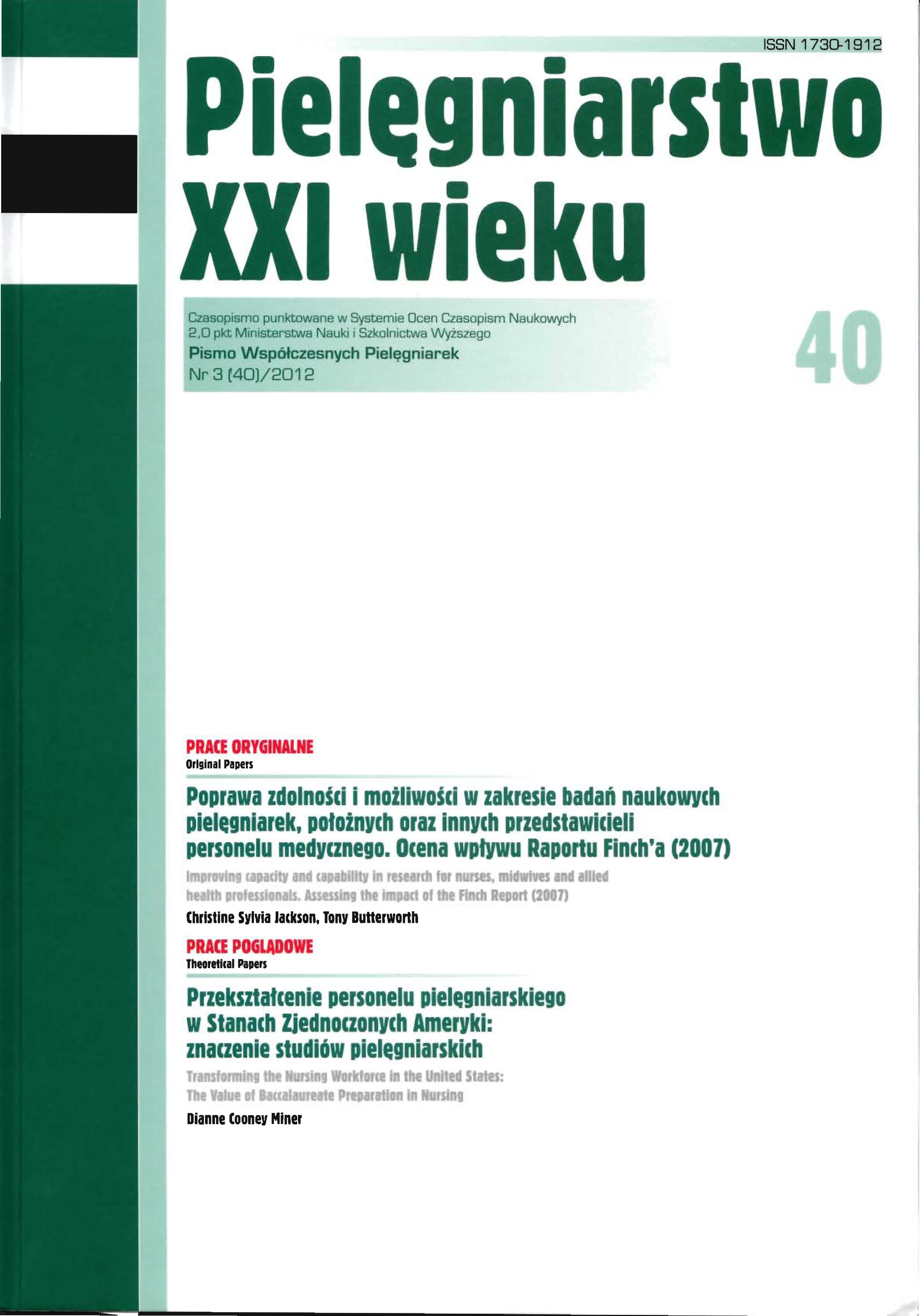Influence of team members on nurses’ satisfaction with their own work
Keywords:
job satisfaction, nursing, teamworkAbstract
INFLUENCE OF TEAM MEMBERS ON NURSES’ SATISFACTION WITH THEIR OWN WORK
Introduction. Teamwork is essential to provide nursing care. Division of work among doctors, nurses and other health and non-health workers is needed, but none of the professional groups can provide complete health care by its individual work.
Aim. Establish up to what level activities of the team members influence satisfaction of nurses with their own work.
Methods. The research was done by type – sectional study, on the sample of 148 nurses. Specially designed questionnaire was created for the purpose of this survey.
Results: According to the data, nurses completely cooperate with other nurses and always solve problem together (45.9%). Nurses generally receive assistance from a doctor in solving problems in 39.2% of cases. Obtained results that 79.1% of nurses is likely to continue working in the same hospital, are in favor of satisfaction with their own work; this is certainly also contributed by other members of the team.
Conclusion. Building and maintaining relationships with colleagues and understanding the different needs of others are key factors for efficient teamwork. Results indicate the need to build better relationships and team work.
References
1. Leggat S. G. Effective healthcare teams require effective team members: defining teamwork competencies, BMC Health Services Research 2007, 7:17 available from: http://www.biomedcentral.com/1472-6963/7/17 (accessed: 15.4.2012.)
2. Jankovic Z. et al. Comparative analysis of employee satisfaction in a special hospital for psychiatric illness "Dr Laza Lazarevic" - Belgrade 2007-2010 years, Zdravstvena zastita 2011; 40 (3): 18-32.
3. Nikic D, Arandjelovic M, Nikolic M, et al. Job satisfaction in health care workers, Acta Medica Medianae 2008; 47 (4): 9-12.
4. Canadian Health Services Research Foundation. Teamwork in Healthcare: Promoting Effective Teamwork in Healthcare in Canada, Policy Synthesis and Recommendations, Ottawa, Ontario, 2006.
5. Krogstad U. et al. Doctor and nurse perception of inter-professional co-operation in hospitals, Int J Qual Health Care 2004; 16 (6):491–497.
6. Kekus D.: Communication in professional practice of health care workers, Belgrade, 2010.
7. WHO: Nursing care of the sick: a guide for nurses working in small rural hospitals. Western Pacific Education in Action Series, 1997;No12
8. Scotland government, Framework for Nursing in General Practice, available from:
http://www.scotland.gov.uk/Publications/2004/09/19966/43293 (accessed: 29.4.2012.)
9. Kalisch BJ, Lee H, Rochman M. Nursing staff teamwork and job satisfaction, J Nurs Manag, 2010; 18, 938–947.
10. Dimitriadou A. et al. Interprofessional collaboration and collaboration among nursing staff members in Northern Greece, International Journal of Caring Sciences,2008; 1(3):140–146.
11. Institute of Public Health of Serbia "Dr Milan Jovanovic Batut": Review of the principal results of satisfaction surveys of employees in state health institutions the Republic of Serbia 2011th, Belgrade, 2012. Available from: http://www.batut.org.rs/download/izvestaji/Zadovoljstvo%20zaposlenih%202011.pdf (accessed: 25.5.2012.)
12. Salas E, Almeida S, Salisbury M. et al. What are the critical success factors for team training in health care? Joint Commission Journal on Quality and Patient Safety, 2009; 35 (8), 398–405.
Downloads
Published
Issue
Section
License
Copyright (c) 2012 Dragana Terzic Markovic, Radmila Rankovic Vasiljevic (Autor)

This work is licensed under a Creative Commons Attribution 4.0 International License.




